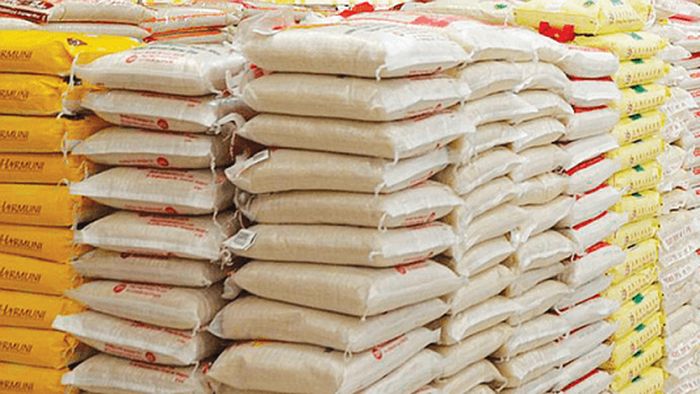According to dealers and distributors of the product, Nigerians may need to brace themselves for a rise in the price of a 50kg bag of locally parboiled rice to as much as N50,000 before December as a result of the flooding in various states.
According to the Ministry of Humanitarian Affairs, flood incidents in Nigeria, the largest economy in Africa, have caused the displacement of over 1.4 million people, destroyed 70,566 hectares of farmland, damaged 45,249 homes, and killed about 600 people.
As a result, food prices have increased, particularly in the communities most severely affected.
The impact of the flood has been greatest on rice, a major grain mostly consumed by households.
Due of the flood, the price of paddy increased from N200,000 to N300,000 per tonne in just three weeks.
More pressure is being put on rice millers as a result of the recent increase in paddy prices, who are already dealing with growing production costs and a nearly three-fold increase in diesel expenses.
According to the National Bureau of Statistics, the nation’s inflation rate in September rose to a level not seen in 17 years, standing at 20.7%.
Ronke Adewale, a rice seller in Mushin’s Daleko Market, said, “At the rate rice prices are rising daily, we might even buy it at N50,000 before December.”
She remarked, “Our suppliers keep raising prices and blaming it on the flooding and the high expense of transportation.”
If you have the cash, you should buy stocks right away because, if the trend continues, things will get worse in December.
Due to a shortage in supply brought on by the floods, Adewale Adegbenro, a rice distributor headquartered in Lagos who purchases from millers in the North, predicted that rice prices would top N50,000 by December.
As of right now, the rice we supplied was selling for N43,000 in Lagos; therefore, by December, the price will undoubtedly surpass N50,000.
The recent increase in the price of a bag of rice, according to Mohammed Abubakar, chairman of the Rice Processors Association of Nigeria, is the result of a number of problems that were made worse by the floods.
In response to inquiries from BusinessDay, Abubakar stated: “The recent spike in the price of a bag of rice is a result of the flooding in major producing areas and a mix of other concerns like high diesel and shipping expenses.
“Hundreds of rice farmlands have been buried by the flood, which has also raised the price of paddy from N200,000 to N300,000 per tonne. Additionally, it has made the diesel and transportation conditions in the North worse,” he continued.
Currently, 33 of the country’s 36 states are affected by flooding, which has increased transportation costs because tankers carrying petroleum goods to the northern states are immobile because the disasters have destroyed the majority of the region’s road networks.
According to a BusinessDay survey of some Lagos markets, a 50 kg bag of locally manufactured parboiled rice now costs, on average, N35,000, up from N28,000 one month earlier.
A 50kg bag of foreign parboiled rice is now available for N43,000 instead of N31,000 as it was one month ago, a 38.7% price increase.
Floods have buried 10,000 hectares of Olam Agri’s largest farmland in the nation, which is located in Nasarawa and is worth roughly $140 million in investment, according to Ade Adefeko, vice president of external relations and stakeholder management.
Some rice sellers in Lagos, the nation’s commercial hub, are reportedly stockpiling the product in expectation of selling at a higher price due to the present shortage in supplies, BusinessDay said.
The price of rice has remained largely unchanged since Russia invaded Ukraine in February despite rising inflation and declining household income. Experts cited the increase in local production for the staple’s price stability.
According to the most recent information available from the UN Food and Agricultural Organization, the largest economy in Africa produced 8.2 million metric tonnes of rice paddy in 2020.
The United States Department of Agriculture, which has forecast that Nigeria’s rice production will reach five million tons in 2022, slightly more than the 4.8 million tons it anticipated last year, is the most recent source of accurate production data.
According to the Ministry of Agriculture, even with this production, the nation would still be two million tons short of what is needed to meet the demand.
However, the sector’s profits are currently in jeopardy due to flooding and currency instability because rice is one of 41 goods that the country’s central bank has banned from foreign exchange.
